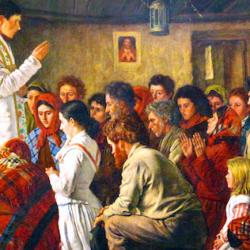In Comment, Jonathan Chaplin helpfully defines the decision to be made in Scotland’s referendum next week. To clarify what’s being decided, Chaplin distinguishes between “nation” and “state.”
“Nations are thickly-textured, evolving, porous, morally ambiguous societal amalgams. While one nation may be more or less recognisable when set against another, nations lack the crucial features of centred identity and independent agency.”
But a “Yes” vote on independence isn’t an affirmation of the Scottish nation. It’s a vote for the creation of “a new, independent centre of political agency which is not identical to the Scottish nation.” Not only do people identified with the Scottish nation live outside Scotland, but many who live in Scotland are not, ethnically, members of the Scottish nation.
The question, then, is not about being for the traditions and identity of the nation. It is about whether there should be a state, and the vote should be based on whether having a separate Scottish state is likely to promote public justice in Scotland more effectively than the current Union.
Chaplin puts the point theologically: A state’s purpose “is a divinely appointed ‘calling’ or ‘ministry’, one which far transcends the goals of expressing, protecting or enhancing ‘the nation’. Most of the matters that fall within the calling of states cannot be identified as ‘national’ questions in the sense defined here but arise from the universal needs, challenges, conflicts and aspirations arising from the public life of any human society: curbing violence, protecting human rights, helping secure the basic necessities of life (food, shelter, work, health), establishing essential public infrastructure, seeking concord with other states, and so forth.”
Chaplin’s article is useful not only for clarifying what’s happening in Scotland, but a good refresher on some basics of Christian political theology.















